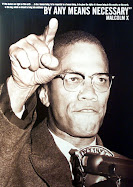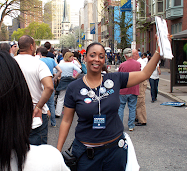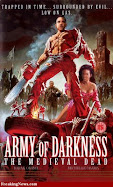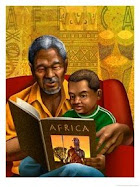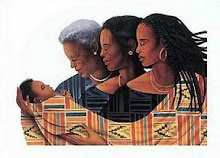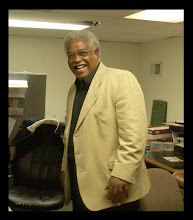Monday, November 27, 2023
Friday, November 10, 2023
Thursday, November 9, 2023
My Homeland
Ibrahim Tuqan – My Homeland
My homeland
My homeland
Glory and beauty
Sublimity and prettiness
Are in your hills
Life and deliverance
Pleasure and hope
Are in your atmosphere
Will I see you?
Safe and comfortable
Sound and honored
Will I see you?
In your eminence
Reaching the stars
My homeland
My homeland
*
The youth will not get tired
Their goal is your independence
Or they die
We will drink from death
But we will not be slaves to our enemies
We do not want
An eternal humiliation
Nor a miserable life
We do not want
But we will return
Our great glory
My homeland
My homeland
*
The sword and the pen
Are our symbols
Not talking nor quarreling
Our glory and covenant
And a duty to fulfill it
Shake us
Our honor
Is an honorable cause
A raised flag
O, your beauty
In your eminence
Victorious over your enemies
My homeland
My homeland
As mentioned above, Ibrahim is Fadwa’s brother who initially introduced her to poetry and literature. Born and raised to a prominent governing family in Nablus in 1905, his works are believed to have influenced generations and echoed the very silenced Palestinian voices at the turn of the 20th century.
My Homeland seems to serve as both a tribute and reminder of how resilient Palestinians are, bearing and carrying “the sword and the pen (as) (their) symbols” at all times – proof that the Palestinian cause will only die out once each and every single pen runs out of ink.
Enough for Me
Fadwa Tuqan – Enough for Me
that she made sure to pen down. Her introduction to poetry was made through her brother who is no other than the illustrious Ibrahim Tuqan, another Palestinian nationalist poet whose work is believed to have rallied Arabs during their revolt against the British mandate.
Wednesday, November 8, 2023
Ta-Nehisi Coates Speaks Out Against Israel's "Segregationist Apartheid R...
Saturday, December 4, 2021
Isn't It a Pity
Sunday, June 13, 2021
Sunday, April 25, 2021
Sunday, April 4, 2021
Thursday, July 2, 2020
Caroline Randall William - My Body Is a Confederate Monument
Caroline Randall William
Vanderbilt Uni.Writer-in-Residence Caroline Randall Williams’ article, “You Want a Confederate Monument? My Body Is a Confederate Monument”, This was published in The New York Times. June 26,2020
Caroline Randall Williams, MFA, is MHS’s newly appointed Writer-In-Residence. Named by Southern Living as “One of the 50 People changing the South,” the Cave Canem fellow has been published and featured in multiple journals, essay collections and news outlets, including The Iowa Review, The Massachusetts Review, CherryBombe, and the New York Times. As a poet, essayist and cookbook author, she works to create texts and raise questions that examine how the lived-in body both inspires and becomes its own text in the world. From blues poetry to the reexamination of soul food in the name of social justice, her multi-genre writing practice invites students both on and off the MHS track to explore ways to analyze the body and the human condition outside of the context of making a diagnosis, and to claim agency in how we shape and articulate our physical and emotional narratives.
Caroline Randall Williams a past Writer-in-Residence at Fisk University and the acclaimed author of Soul Food Love, Lucy Negro Redux, and The Diary of B.B. Bright: Possible Princess.
Caroline is an author, poet, and academic whose 2015 book “Lucy Negro, Redux” was re-released in 2019 by Third Man Books and adapted into a ballet. In addition to her books of poetry, Caroline also co-wrote a cookbook with her mother, author Alice Randall, in 2015 called “Soul Food Love.” That book received the NAACP Image Award in Literature and led Southern Living to call her one of the “50 people changing the south.”
Williams, a native of Nashville, Tennessee, is a graduate of Harvard University, class of 2010. After graduation, she spent two years as an instructor in the Teach for America program. She received the Master of Fine Arts (MFA) in Creative Writing from the University of Mississippi in 2015. She is the great granddaughter of Arna Bontemps, the African-American poet, novelist and noted member of the Harlem Renaissance,and the granddaughter of Avon Williams, the Nashville lawyer and key leader of the city's civil rights movement. In January 2015, she was named by Southern Living magazine as one of the "50 People Changing the South in 2015." In 2015, she joined the faculty of West Virginia University as an assistant professor. In 2016 she was appointed Writer-In-Residence at Fisk University. In the Fall of 2019, she joined the faculty of Vanderbilt University. as the Writer-In-Residence of Medicine, Health, and Society;
My Body Is a Confederate Monument
I am a black, Southern woman, and of my immediate white male ancestors, all of them were rapists. My very existence is a relic of slavery and Jim Crow.
— I have rape-colored skin. My light-brown-blackness is a living testament to the rules, the practices, the causes of the Old South.
If there are those who want to remember the legacy of the Confederacy, if they want monuments, well, then, my body is a monument. My skin is a monument.
Dead Confederates are honored all over this country — with cartoonish private statues, solemn public monuments and even in the names of United States Army bases. It fortifies and heartens me to witness the protests against this practice and the growing clamor from serious, nonpartisan public servants to redress it. But there are still those — like President Trump and the Senate majority leader, Mitch McConnell — who cannot understand the difference between rewriting and reframing the past. I say it is not a matter of “airbrushing” history, but of adding a new perspective.
According to the rule of hypodescent (the social and legal practice of assigning a genetically mixed-race person to the race with less social power) I am the daughter of two black people, the granddaughter of four black people, the great-granddaughter of eight black people. Go back one more generation and it gets less straightforward, and more sinister. As far as family history has always told, and as modern DNA testing has allowed me to confirm, I am the descendant of black women who were domestic servants and white men who raped their help.
It is an extraordinary truth of my life that I am biologically more than half white, and yet I have no white people in my genealogy in living memory. No. Voluntary. Whiteness. I am more than half white, and none of it was consensual. White Southern men — my ancestors — took what they wanted from women they did not love, over whom they had extraordinary power, and then failed to claim their children.
What is a monument but a standing memory? An artifact to make tangible the truth of the past. My body and blood are a tangible truth of the South and its past. The black people I come from were owned by the white people I come from. The white people I come from fought and died for their Lost Cause. And I ask you now, who dares to tell me to celebrate them? Who dares to ask me to accept their mounted pedestals?
You cannot dismiss me as someone who doesn’t understand. You cannot say it wasn’t my family members who fought and died. My blackness does not put me on the other side of anything. It puts me squarely at the heart of the debate. I don’t just come from the South. I come from Confederates. I’ve got rebel-gray blue blood coursing my veins. My great-grandfather Will was raised with the knowledge that Edmund Pettus was his father. Pettus, the storied Confederate general, the grand dragon of the Ku Klux Klan, the man for whom Selma’s Bloody Sunday Bridge is named. So I am not an outsider who makes these demands. I am a great-great-granddaughter.
And here I’m called to say that there is much about the South that is precious to me. I do my best teaching and writing here. There is, however, a peculiar model of Southern pride that must now, at long last, be reckoned with.
This is not an ignorant pride but a defiant one. It is a pride that says, “Our history is rich, our causes are justified, our ancestors lie beyond reproach.” It is a pining for greatness, if you will, a wish again for a certain kind of American memory. A monument-worthy memory.
But here’s the thing: Our ancestors don’t deserve your unconditional pride. Yes, I am proud of every one of my black ancestors who survived slavery. They earned that pride, by any decent person’s reckoning. But I am not proud of the white ancestors whom I know, by virtue of my very existence, to be bad actors.
Among the apologists for the Southern cause and for its monuments, there are those who dismiss the hardships of the past. They imagine a world of benevolent masters, and speak with misty eyes of gentility and honor and the land. They deny plantation rape, or explain it away, or question the degree of frequency with which it occurred.
To those people it is my privilege to say, I am proof. I am proof that whatever else the South might have been, or might believe itself to be, it was and is a space whose prosperity and sense of romance and nostalgia were built upon the grievous exploitation of black life.
The dream version of the Old South never existed. Any manufactured monument to that time in that place tells half a truth at best. The ideas and ideals it purports to honor are not real. To those who have embraced these delusions: Now is the time to re-examine your position.
Either you have been blind to a truth that my body’s story forces you to see, or you really do mean to honor the oppressors at the expense of the oppressed, and you must at last acknowledge your emotional investment in a legacy of hate.
Either way, I say the monuments of stone and metal, the monuments of cloth and wood, all the man-made monuments, must come down. I defy any sentimental Southerner to defend our ancestors to me. I am quite literally made of the reasons to strip them of their laurels.
https://local.cltampa.com/event/ellas-americana-folk-art-cafe/awp-reading-rock-show-dance-party-wjacuzzi-boys
http://www.tedxnashville.com/upcoming-events/tedxnashville-2020/tedxnashville-2020-speakers/caroline-randall-williams/
http://thackermountain.com/home/caroline-randall-williams-2/
http://www.sewanee.edu/academics/english/news/new-course-for-easter-2019-writing-the-blues.php
https://www.nytimes.com/2020/06/26/opinion/confederate-monuments-racism.html
https://www.vanderbilt.edu/mhs/2020/06/williams-my-body-confederate-monument/
https://en.wikipedia.org/wiki/Caroline_Randall_Williams
Thursday, March 26, 2020
DEACON OTIS WICKNINE sings "Don't Let The Corona Get On Ya"
Thank you Stephanie Hill for this great find! Much Love and Good Health to YOU and all of your family -- as I bless mine with this fantastic musical rendition!!! [And where is a SMILEY FACE when you need one?????]
Monday, March 16, 2020
Coronavirus Impacts Tom Hanks, the NBA and Monkeys in Thailand | The Dai...
How does this man from African get to pick up the Black idiom and situational familial experessions so accurately? I mean, this guy is seriously gifted in abundant ways. Anyway, I really like his style and you should too, I think he's kind of amazing in his own right.
Sunday, March 15, 2020
Friday, March 13, 2020
Wednesday, March 11, 2020
Maya Moore on Justice for Jonathan Irons | Amanpour and Company
This story is a scathing indictment of the USA justice system. It is actually representative of a modern-day slavery scheme to falsely and callously imprison young Black men possibly to fulfill a monetary social gain to keep the prisons full and destroy the lives of young Black men regardless of any rationale for true justice
Sunday, March 8, 2020
Sunday, February 23, 2020
2017 National Poetry Slam
2017 National Poetry Slam
2017 NPS Finals - Brooklyn Slam -Crystal Valentine, Roya Marsh, Paul Tran, and Chris Lilley
Crystal Valentine, Roya Marsh, Paul Tran, and Chris Lilley of Brooklyn Slam performing an original poem at the 2017 National Poetry Slam Finals at Paramount Theatre in Denver, Colorado.
2017 NPS Finals - Dominique Christina "Mothers of Murdered Sons"
Dominique Christina performing an original poem at the 2017 National Poetry Slam Finals at Paramount Theatre in Denver, Colorado.
2017 NPS Finals - dada slam
dada slam, winners of the Group Piece Finals at the 2017 National Poetry Slam, performing an original poem at the Paramount Theatre in Denver, Colorado
2017 NPS Finals - San Diego Poetry Slam - "America" Javon Johnson, Natasha Hooper, & Rudy Francisco
Javon Johnson, Natasha Hooper, and Rudy Francisco of San Diego Poetry Slam performing an original poem at the Paramount Theatre in Denver, Colorado.
2017 NPS Finals - Da Poetry Lounge "Whoopings"
Kito Fortune, Poetic Moment, Alyesha Wise of Da Poetry Lounge slam team performing an original poem at the Paramount Theatre in Denver, Colorado.
2017 National Poetry Slam - Brooklyn Slam
Paul Tran, Roya Marsh, Crystal Valentine, and Chris Lilley of Brooklyn slam team performing an original poem at the Paramount Theatre in Denver, Colorado.
2017 NPS Finals - House Slam - Angelica Maria Aguilera
Angelica Maria Aguilera with Boston's House Slam performing an original poem at the 2017 National Poetry Slam Finals at Paramount Theatre in Denver, Colorado.










